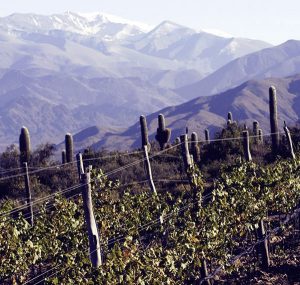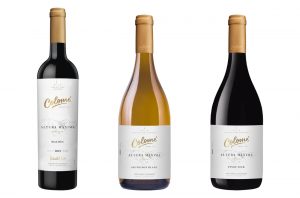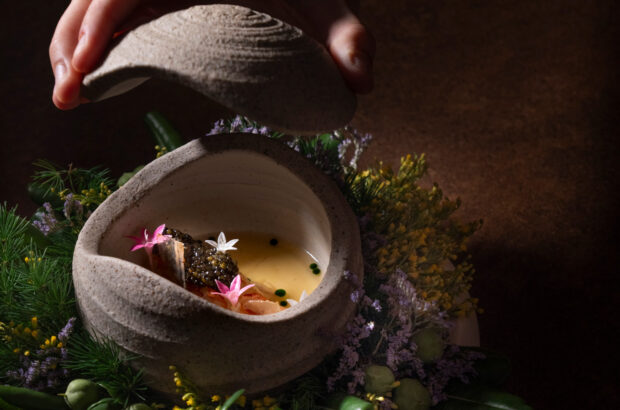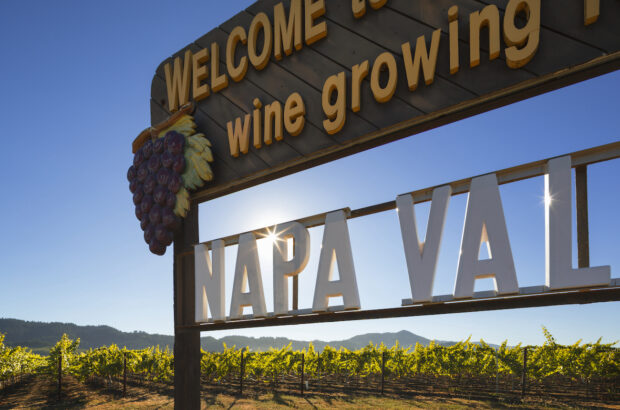Founded in 1831 in an inhospitable location nestled in the Calchaquí Valleys at an altitude of 2300 m above sea level, Colomé has established itself as one of Argentina’s most renowned wineries. This is not only a product of the character of its wines but also of its unique heritage: Colomé is the oldest winery still in operation in Argentina, boasts a valuable stock of pre-phylloxera vines, and was the first to plant vineyards and produce high-end wines above 3000 metres above sea level – 3111 metres to be exact.
Purchased in 2003 by Donald and Úrsula Hess, the winery is currently managed by Larissa and Christoph Ehrbar, Úrsula’s daughter and son-in-law. The couple is working hard to continue the legacy of extraordinary high-altitude wines made under sustainable viticultural practices.
Altura Máxima, a vision realised in vines
Being a pioneer in an extreme terroir is a challenge that requires determination and confidence. Both have long been signature virtues of Donald Hess, who in 2003 believed in the potential of Payogasta, a stunning unexplored location in the Calchaquí Valleys.

There, in poor alluvial mountain soils (sandy with large percentage of limestone and volcanic granite) Colomé planted, between 2007 and 2009, the Altura Máxima vineyard – 25 hectares of Sauvignon Blanc, Pinot Noir and Malbec at an altitude of between 2900 and 3100 metres.
‘Altura Máxima is a unique vineyard that experiences extreme conditions. Mild temperatures during the day, which during the ripening season never go above 28ºC, very cold nights when they dip as low as 6ºC, as well as high levels of UV radiation causing the berries to develop thick, dark skins to protect themselves,” says Thibaut Delmotte, winemaker at Bodega Colomé.

Thibaut Delmotte
Thanks to these extreme conditions and to the nature of its location, Altura Máxima has become one of Argentina’s iconic high-altitude vineyards, producing wines with a unique character that deliver intense, concentrated colour, elegance, aromatic complexity, vibrant freshness and excellent tannic structure.
Altura Máxima, the home of extreme wines
The emergence of wines that truly represent the terroir of Altura Máxima was a major landmark in Calchaquí viticulture. It took a few years for the results Donald Hess was hoping for to be achieved, but the patience paid off.
The first Colomé Altura Máxima Malbec, from the 2012 vintage, was only released in 2016 – a wine of which only six barrels were made and which soon earned a place among the best Malbecs in Argentina. ‘The Malbec from Altura Máxima is a wine very different from anything that preceded it. We achieved excellent ripeness of the fruit while maintaining significant natural freshness alongside good tannins. It’s a unique, very complex and elegant wine with good concentration and body,’ says Delmotte.
In the 2018 harvest Bodega Colomé added two new varietals to its high-end list: a Pinot Noir and a Sauvignon Blanc.
Colomé Altura Máxima Pinot Noir 2020 is the fruit of a painstaking harvest of low-yield vines. 20% whole-bunch fermented, with daily punch down and aged for 12 months in neutral oak, it has good colour, acidity, concentration and subtle mineral flavours.
Meanwhile, Colomé Altura Máxima Sauvignon Blanc 2021 was made with the first harvested fruit as the powerful sunlight ensured early, healthy ripening. 25% of the wine was fermented and aged in barrels with fine lees. ‘Altura Máxima Sauvignon Blanc surprised us with its intense citrusy expression and notes of asparagus, minerals and white fruit. It’s a unique Sauvignon Blanc,’ says Delmotte.








